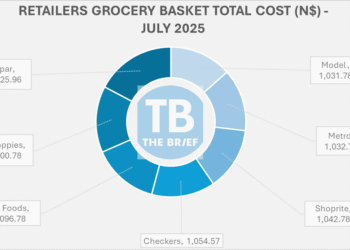
The Bank of England raised interest rates by the most in 33 years but strongly pushed back against market expectations for the scale of future increases, warning that following that path would induce a two-year recession.
The Monetary Policy Committee voted 7-2 to lift rates by 75 basis points to 3%, the highest level in 14 years. But in an usually blunt comment on investors’ outlook for future hikes, it stressed the peak in rates will be “lower than priced into financial markets.â€
Staying on the market path used in the forecasts, which peaks at around 5.25% next year, would knock 3% off GDP and ultimately push inflation to zero, the BOE said. An outlook based on rates staying at their current 3% level implies a shorter, shallower recession and sees inflation fall close to target in two years’ time.
Markets have already slightly tempered their view since the forecasts were closed, with expectations going into the meeting suggesting rates would peak at 4.75%.
The size of the November hike will “reduce the risks of a more extended and costly tightening later,†the MPC said in the minutes to the meeting.
The dissenters were Swati Dhingra, who voted for a half-point rise, and Silvana Tenreyro, who preferred a quarter point.BOE Governor Andrew Bailey will address the decision at a press conference at 12:30 pm London time.
The three-quarter point move was anticipated by investors and economists.But while the BOE said more rate hikes may be required, potentially even “forcefully’’ if inflation pressures look persistent, the forecasts were a clear warning that market rate expectations have overshot.
The BOE warned the UK economy faces a ‘very challenging outlook.’’
Its forecasts imply the UK is already in recession, and that GDP will fall for eight straight quarters until mid-2024.
GDP will fall thanks to “higher energy prices and materially tighter financial conditions,†the BOE said, signalling that elevated borrowing costs will hammer households and businesses.
Part of that tightening comes from the market chaos that followed former Prime Minister Liz Truss’s botched fiscal plan in September.
That sent mortgage rates soaring to 14-year highs, hurting households already suffering under a cost of living crisis caused by rising energy and food costs.-fin24











